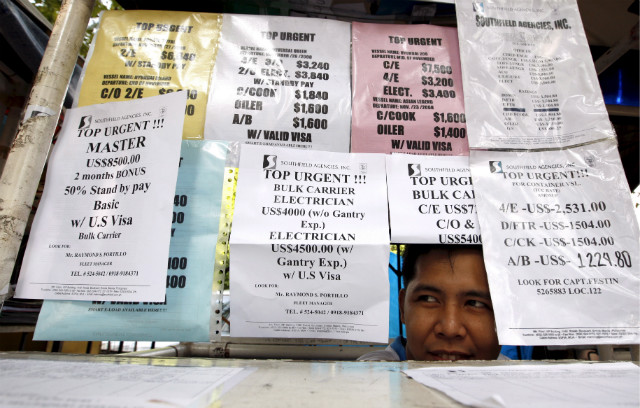SUMMARY
This is AI generated summarization, which may have errors. For context, always refer to the full article.

MANILA, Philippines – The training and certification of over 400,000 Filipino seafarers will now be centralized under one agency: the Maritime Industry Authority (MARINA).
RA 10635, signed into law by President Benigno Aquino III on March 13, authorizes MARINA “to carry out an effective regulatory framework conducive to the efficiency, transparency and competitiveness of the Philippine seafaring industry.”
These functions – now to be discharged by the MARINA by virtue of RA 10635 – were previously handled by different agencies including the Professional Regulation Commission (PRC), Commission on Higher Education (CHED), Technical Education and Skills Development Authority (TESDA), National Telecommunications Commission (NTC), and Department of Health (DOH).
The law seeks to comply with global industry standards prescribed in the 1978 International Convention on Standards of Training, Certification and Watchkeeping for Seafarers, to which the Philippines is a signatory.
Senate President Franklin Drilon, a staunch Aquino ally, is the principal author of the measure.
The Philippines is known as the world’s leading supplier of seafarers but was almost included in the European Union (EU) blacklist if not for the reform bill. Seafarers contribute an annual estimated gain of $5 billion to the country’s economy.
The bill was passed in Congress on February 10.
MARINA administrator Maximo Mejia Jr told Rappler in a previous interview that 5,000 Filipino officers aboard EU ships will be affected if the EU blacklists the Philippines.
Mejia said the European Maritime Safety Agency’s (EMSA) biggest concern was for the Philippines to have a “system that works” in identifying maritime schools that comply with international standards, particularly the 1978 International Convention on Standards of Training, Certification, Watchkeeping for Seafarers or the STCW Convention. – Rappler.com
Add a comment
How does this make you feel?
There are no comments yet. Add your comment to start the conversation.